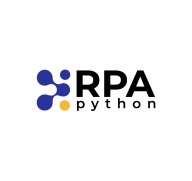


WorkFusion and Python RPA are competing products in the robotic process automation market. Python RPA often holds an edge due to its robust features and favorable cost-benefit ratio, despite WorkFusion's advantages in pricing and customer service.
Features: WorkFusion offers AI-driven automation, advanced analytics, and high scalability suitable for enterprise use. Python RPA provides flexibility, ease of coding, and extensive library support, appealing to developers seeking customizable solutions.
Ease of Deployment and Customer Service: WorkFusion provides a structured deployment model with comprehensive support and training for quick organizational implementation. Python RPA offers flexible deployment requiring programming expertise, supported by vast online resources. WorkFusion's customer service is notable due to direct support channels.
Pricing and ROI: WorkFusion involves higher setup costs justified by premium features for substantial ROI in larger implementations. Python RPA offers lower initial costs, providing significant ROI through reduced overhead and flexibility, making it cost-effective for smaller operations or bespoke solutions.
Fortra's Automate has effectively replaced the workload of an entire employee, saving us significant time and money.
They don't always understand the processes I'm trying to implement.
They are very responsive and have been able to resolve any issues I have encountered.
I would rate the technical support as a nine out of ten because it is quite fast and courteous.
Some issues are resolved quickly, while others might take time as they require further analysis.
They allow sharing of issues faced in use cases and work alongside us to resolve them.
Initial support often struggles to find solutions, leading to delays until more experienced personnel get involved.
It is easy to increase one bot or one studio without needing to buy another orchestrator, which can be quite expensive.
WorkFusion is efficient for structured automation tasks with predefined templates and clear documentation.
The number of bots currently running on the platform should be more than 1,000, including RPA and non-RPA bots.
The stability of Fortra's Automate is excellent.
It has very robust features, and it is not prone to instability.
WorkFusion requires a strong background in Java to meet requirements effectively.
I frequently face issues with infrastructure and some WorkFusion-related problems, such as login issues.
Some stability problems may arise from processes that have not been designed or coded properly, leading to glitches.
Integration with Amazon S3 is somewhat lacking.
I would prefer not having to log in to update a ticket; being able to respond via email would be beneficial.
I find that most important features are strong, however, there is a lack of good development for artificial intelligence, such as machine learning.
In low-code automation, most parts are not customizable, particularly when Excel is involved, which increases complexity.
The main concern is the technical nature, which requires significant Java skills.
Competitors are often more expensive than Automate.
It offered what we wanted at a good, competitive price.
It does a lot but also costs a lot.
I am not familiar with the exact pricing, however, it is considered pricey.
Currently, I would rate their pricing around two, as WorkFusion's cloud version seems costly compared to others.
It is worth the money as a tool.
Automate's non-reliance on additional orchestrators makes it quite cost-effective.
The most valuable features of Fortra's Automate include its FTP functionality and file manipulation capabilities.
I really like the API functionality; it's a slick aspect of the solution when I'm using it.
It also supports reusable code components through Java, making it efficient for developers.
They provide an inbuilt Selenium framework and infrastructure that eases my workload, allowing me to write Java code and embed it within Groovy classes.
The platform now includes auto machine learning and AI capabilities.



Automate offers a user-friendly solution with a drag-and-drop interface for efficient task automation and integration with major platforms like SAP and Azure, making it ideal for quick deployment with minimal coding and training.
Automate provides powerful features for businesses seeking efficient automation, offering compatibility with databases, email integration, and cloud platforms. Its simple interface supports both beginners and experienced users, simplifying tasks like invoice processing, HR automation, and data transformation. Cost-effective pricing and flexible licensing enhance its appeal while integration capabilities and scheduling tools ensure smooth workflow automation.
What are Automate's Key Features?In industries such as healthcare, banking, and logistics, Automate is used for tasks like invoice payment automation, data transformation, and task automation. This leads to streamlined processes and reduced manual workload, illustrating its value in enhancing operational efficiency through diversified workflows.
Users employ Python RPA for automating repetitive tasks and streamlining workflows, reducing manual errors, and enhancing efficiency in processing data, web scraping, and application integration.
Python RPA is valued for its ability to handle complex automation processes, its flexibility, and its compatibility with different systems. It is particularly beneficial for large-scale data handling and business process automation. Users find the extensive library and strong community support helpful for swift issue resolution and knowledge sharing. Its intuitive design and clear documentation simplify the learning curve and implementation. However, documentation can lack depth, making troubleshooting challenging. The setup process can be cumbersome, requiring more intuitive guidance. Execution speed can be slow, causing inefficiencies in workflows, and there is a need for better support and resources for developers. Some users report difficulties with integration into existing systems, suggesting enhanced compatibility and flexibility are needed.
What are the key features?In industries where large-scale data processing is essential, such as finance or healthcare, Python RPA helps automate data entry, validation, and reporting, significantly reducing manual labor and improving accuracy. In retail, it integrates with e-commerce platforms to automate order processing and inventory management, ensuring smooth operations. Other sectors, like logistics, benefit from Python RPA by streamlining dispatch and tracking processes, enhancing operational efficiency and customer satisfaction.
WorkFusion, Inc. is the creator of AI-enabled Digital Workers designed specifically for banking and financial services organizations. Its Digital Workers are true knowledge workers that effectively augment existing teams in functions like anti-money laundering (AML), sanctions, customer onboarding, Know Your Customer (KYC), and customer service. WorkFusion’s digital workforce solutions help solve talent shortages, increase workforce capacity, save money, enhance employee and customer satisfaction, and ensure ongoing compliance. For more information visit workfusion.com.
We monitor all Robotic Process Automation (RPA) reviews to prevent fraudulent reviews and keep review quality high. We do not post reviews by company employees or direct competitors. We validate each review for authenticity via cross-reference with LinkedIn, and personal follow-up with the reviewer when necessary.